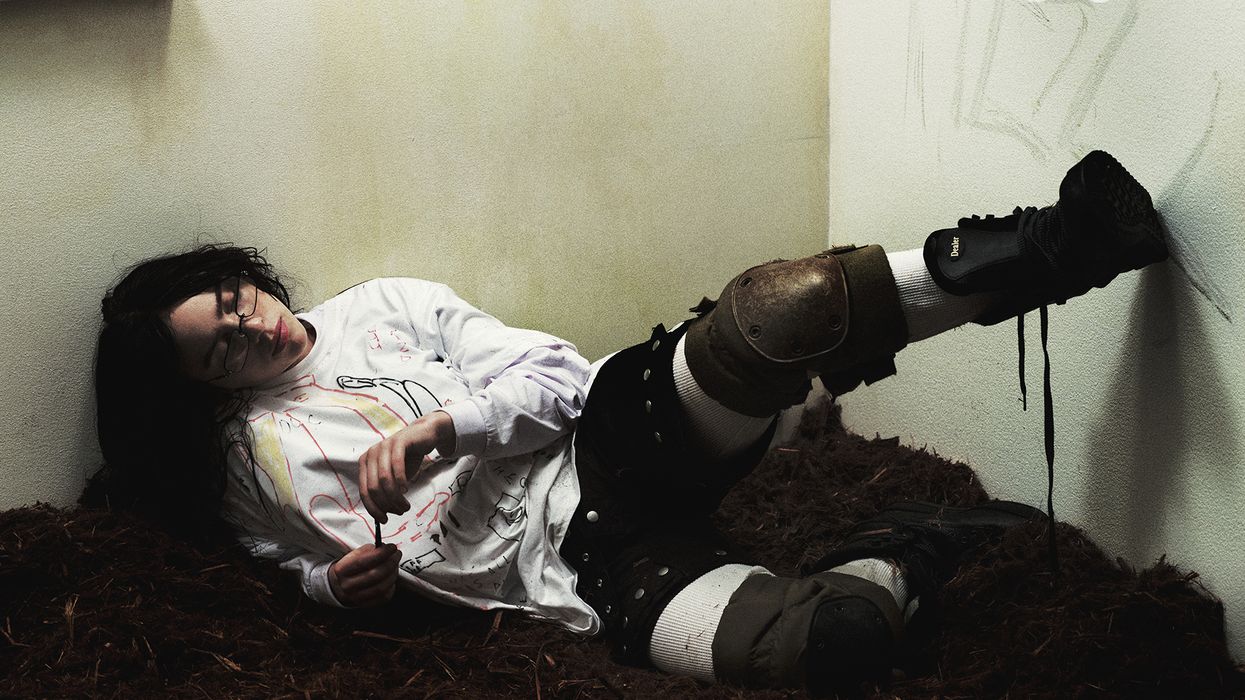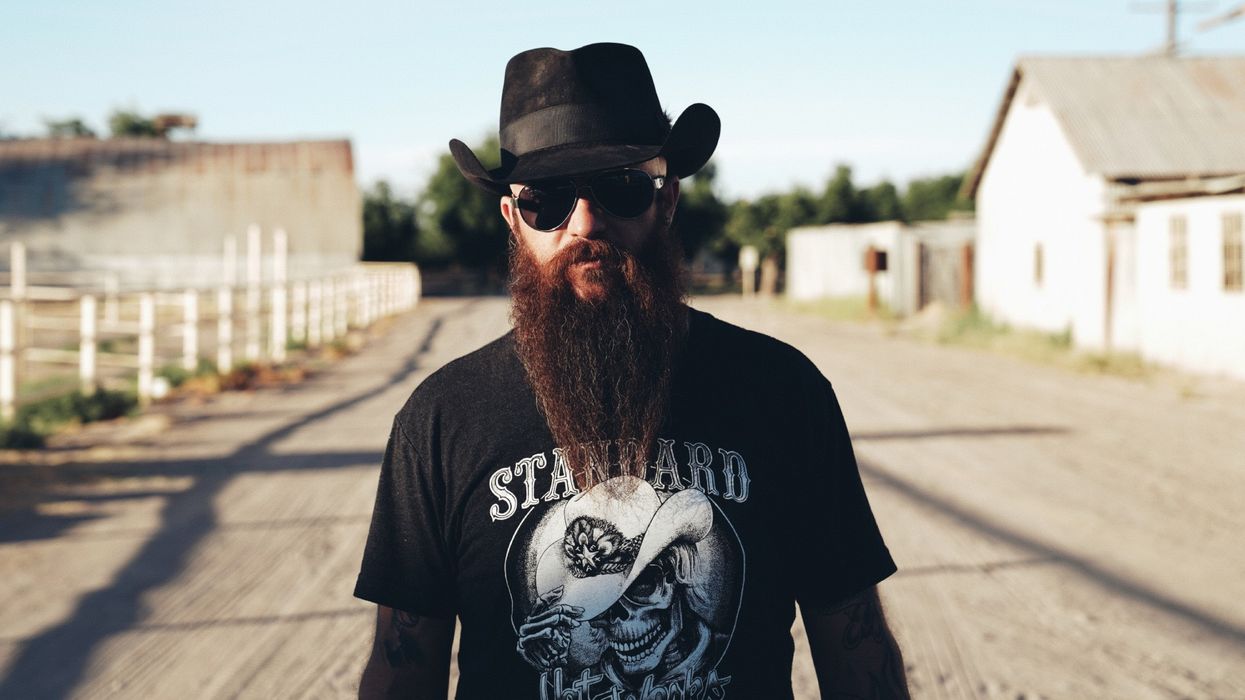We are a country obsessed with reboots. Refashioning tired narratives into something that ideally becomes new in its retelling. Or, perhaps, just makes studio executives more money. We after all must endure an endless return of Marvel and DC characters, adaptations of adaptations, until everything feels like a shitty copy of a copy, rasterized, and remade until the sign and signifier barely have any resemblance.
But which stories do we reboot and why? Which narratives deserve a second look? And of all of them, and in this economy, why was it Presumed Innocent, the 1990 film adaptation of Scott Turow’s first novel? Co-starring Harrison Ford and Bonnie Bedelia, Presumed Innocent was the 11th-highest-grossing film of that year, which is significant, but it was no Ghost or Pretty Woman. (Although running down the other movies on that list, it’s depressing to see how many have already been remade, namely Teenage Mutant Ninja Turtles and Die Hard 2.)
But Presumed Innocent didn’t have the financial force of a higher-grossing movie. And surely, in 2024, no one is nostalgic for a legal drama where powerful women who step outside of their lane are destroyed or are willing to destroy themselves for mediocre men, right? Surely, if such a story were stretched out into eight episodes of television, it wouldn’t be something people would want to renew for a second season, right?
Women of the 1980s were newly empowered with corporate jobs, no-fault divorce, birth control, the ability to buy homes, get bank accounts, and credit cards. And this archetype of the ambitious woman as an alluring and destabilizing force rose like a Lilith freed from Eden in the erotic thrillers of the Eighties and Nineties, where men’s dalliances with these powerful women ended in death and dismemberment, if not of the women themselves, at least of a rabbit or two. As such, Presumed Innocent is a movie of feminist backlash, encapsulating a certain cultural fear of male displacement and horniness for this new kind of woman.
Laden with ample shoulder pads and stunning bobs, the movie stays as close as possible to Turow’s expansive and overwrought novel. Both the book and the movie are about the murder of a dangerous and careerist attorney, Carolyn Polhemus. Polhemus works her way up in the prosecutor’s office, taking on the rape and child abuse cases no one wants. She also has multiple relationships with co-workers.
When she is discovered murdered, her ex-lover and co-worker Rozat “Rusty” Sabich is put in charge of her case, until he becomes a prime suspect and eventually stands trial for the murder. Sabich is a family man and lead prosecutor. In the book, Polhemus ends her relationship with Sabich after she discovers he doesn’t want to run for county attorney. She’s conniving and, the book and the movie imply, willing to sleep her way to the top. In fact, there are few men in the office she hasn’t slept with.
In both stories, there is a twist involving birth control. Polhemus is a mother who has basically abandoned her only child and had a tubal ligation to prevent her from having another — all in the name, we are to assume, of focusing on her career. Her role as both a callous, neglectful mother and a no-longer-fertile sex fiend set her up as a woman with nothing tying her down, a woman who is a threat to the nuclear family. And she must be brought down.
In both the book and the movie, the twist ending is that Sabich’s wife, Barbara, a struggling academic who hasn’t finished her dissertation, is the murderer. As she tells her husband of her motive, “The destroyer must be destroyed.”
Anne Rice, in her 1987 review of the novel for the New York Times, perfectly describes Sabich’s problems with the women around him, noting, “The fact is that Rusty is deeply vulnerable to anyone. Though the important women in the book clearly overwhelm him and arouse his resentment — the absence of a major sympathetic female in the cast is obvious — all his observations have the detailed sensitivity of one who is at the mercy of what he sees and feels.”

The 2024 remake attempts to be kinder to Polhemus. The Apple TV+ series, starring Jake Gyllenhall, scrubs the story of the latent homophobia that glides like oil on the water of the movie and the book. And it gives Sabich’s wife, Barbara, played by Ruth Negga, more of a narrative arc; for example, instead of being a struggling academic, she’s an artist, whose dreams have been thwarted by motherhood and Rusty’s career. But still, that arc has more to do with Negga’s brilliant acting rather than her lines or her scenes. She gets more time to live on the screen, but her existence is still centered around her husband and children. And if the ending of the television show’s story stays true to the twist of the book and the movie, all this is doing is building her character so that her actions in the end feel less abrupt. These moments are not fleshing her out as a person; rather, they’re establishing her world as so small, fragile, so in need of defending, that she cannot see anything else.
In the television show, Polhemus’ image is also softened. The ambitious temptress is remade and in the process defanged. She is no longer slut-shamed or described as “dangerous,” “bad,” and careerist. But these judgements are replaced by genuflection to her motherhood. She still has a child she abandoned, but gone is the plotline of birth control, and (light spoiler) instead, there is a twist where Polhemus is pregnant. Which actually feels consistent with a world in which abortions and birth control are often harder to access today than they were in 1990. Instead of being an infertile slave to ambition, hell-bent on destroying the Sabich family, Polhemus is now a lapsed mother seeking redemption in the birth of another child.
But it’s frustrating that a screenwriter as celebrated and skilled as David E. Kelley can only envision one way to make a woman empathetic in this reboot — give her not one, but two kids. If the 1990s version of this story made a woman a villain by the presence of a tubal ligation, in 2024, she’s declared a saint by her desire to carry a pregnancy to term.
At least as an evil caricature in the movie, Polhemus had drive and motivation. Sure, she existed only in flashback, and as such, was only really written as a figment of the male imagination. But as a temptress and hard-driving career woman, at least she had color. Her wanting, her needing, her grasping, made sense. In the book, too, while Turow still relies on gendered tropes, he allowed his characters to be complex.
In the show, like the movie and the novel, Polhemus also exists only through flashbacks — alive trapped in the minds of men. The show’s take is less vicious, but her complexity is gone. Gone is her evil nature. And with that, she’s also robbed of depictions of her career competence. She is washed out. Now she’s a passive victim. Sure, she initiates the affair with Sabich, but by the end she’s made to seem afraid of him and the men around her. This update of Polhemus is really in language only. It’s like if a man went to therapy and learned to stop calling women whores but never stopped pestering them about their “body count.” Same trope, different words. It’s just the Madonna-whore complex inverted and repackaged, this time with 30-percent better sex scenes.
And it’s boring — boring screenwriting, boring lack of imagination, and a boring way to see human beings. If people want to know why America seems to be swirling down a toilet bowl of mediocre reboots from our presidential election to our television shows, maybe it’s because we are trapped in the limited imaginations of people who cannot see women as anything other than entities who live to serve them or destroy them.
In the movie, Ford’s Sabich is stoic, almost catatonic, in the face of the crazy women around him. In the television show, Gyllenhaal’s Sabich is whiny, impulsive, and insistent on his own righteousness. That at least is more consistent with the reality of modern men, lost in the world of consequences of their own actions. But again, if the twist remains, there will be no consequences for Sabich and he will be a victim of the crazy women around him.
Remakes do not just fall out of a coconut tree. They live, in the worlds of the Vice President, in the context of all that surrounds them. And the context of our world in 2024 is one of feminist backlash.
As such, the decision to remake this story right now seems pointed. It’s a way to regurgitate a cultural resentment about women trying to be more than what men want them to be. Another way to put a head on a pike, see? See what happens when the home is threatened by your ambitions? See what happens, ladies?
There was an opportunity here to try something new. After all, my reading of Turow’s novel is that it was a story of a system turned upside down and against a person it was designed to protect, a person who ran that system: What happens if the people who are the protected become the victims? A worthwhile reboot, then, would turn that reading on its head, asking, what if the presumed innocent are actually guilty? And what if the people presumed guilty from the start are allowed to be human? Who does this system work for? Who is presumed innocent, and who is always guilty? Because, it’s still — always — the women.
Maybe the series’ close point of view from Sabich’s sense of entitlement and victimhood is supposed to make a larger point about this man and the women around him. But making him the center means we are still stuck in a narrative where innocent men are lost in a world of crazy, bitter women.
A successful remake, one that breaks free of confines of Turow’s world, would require allowing the female characters to exist outside of the white male imagination. And this would require revisiting the source material in a drastic way — one that doesn’t just borrow empty tropes and update them for a new millennium, this time with less birth control. This show, while enjoyable enough to watch while simultaneously scrolling through your phone, never fully breaks free of the prison of the past. It’s not clear that a second season will do so, either. We will still end up in the same place. And that’s not anywhere good.
















